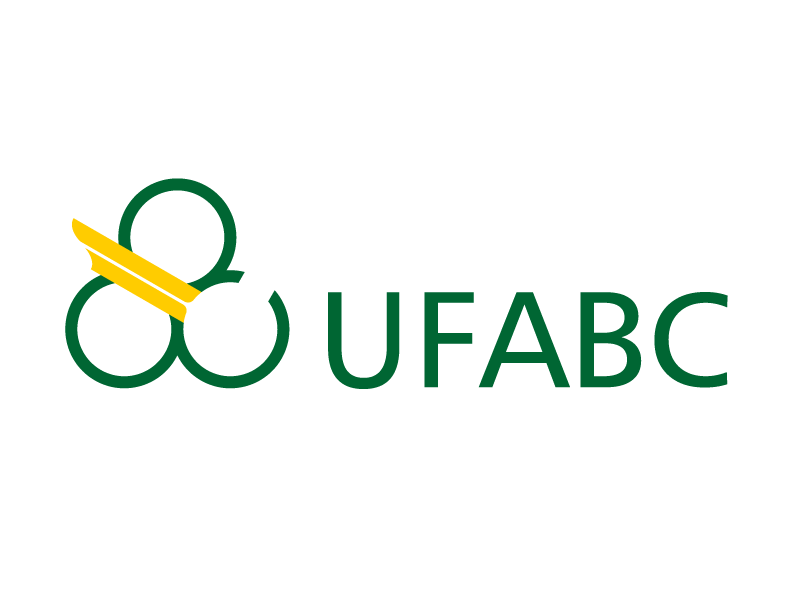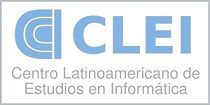
São Paulo, BR
01 a 05 de octubre de 2018
Mackenzie - Campus Higienópolis

Keynote Speakers
Ontobras Keynote Speakers
Keynote Speaker: Diego Calvanese
Position: Full Professor at the Research Centre for Knowledge and Data (KRDB), at the Faculty of Computer Science of the Free University of Bozen-Bolzano.
Keynote Title: Ontology-based Data Access and Integration: Beyond Relational Data
Keynote Abstract:
Ontology-based data access and integration (OBDA/I) are by now well-established paradigms in which users are provided access to one or more data sources through a conceptual view that abstracts away details about how the data is organized and stored. This conceptual view is realized through an ontology that is connected to the data sources through declarative mappings. In the last decade, OBDA/I have been studied extensively in the prominent case where the data sources being queried are standard relational databases. Advanced tools are available that support query processing in OBDA/I systems, and this paradigm has been applied in many real-world scenarios in industry and in public administrations. However, the need has emerged for extending it to novel types of data, such as temporal, streaming, or tree-structured data. In this talk, we first overview the basic principles underlying OBDA/I by relying on significant industrial use cases. We then discuss the challenges that extensions beyond relational data pose for OBDA/I, and we present recent developments on how to incorporate such novel forms of data into state-of-the-art systems. The techniques we present are currently being incorporated into Ontop, an OBDA system developed at the Free University of Bozen-Bolzano.
Short Bio:
Diego Calvanese is a full professor at the Research Centre for Knowledge and Data (KRDB), Faculty of Computer Science, Free University of Bozen-Bolzano. He received a PhD from Sapienza University of Rome in 1996. His research interests include formalisms for knowledge representation and reasoning, ontology based data access and integration, description logics, Semantic Web, graph data management, data-aware process verification, and service modeling and synthesis. He is the author of around 350 refereed publications, including ones in the most prestigious international journals and conferences in Databases and Artificial Intelligence, with around 28000 citations and an h-index of 68, according to Google Scholar. He is one of the editors of the Description Logic Handbook. He has served in over 100 program committee roles for international events, and he is an associate editor of Artificial Intelligence and of JAIR and a member of the editorial board of the Journal of Automated Reasoning. In 2012-2013 he has been a visiting researcher at the Technical University of Vienna as Pauli Fellow of the “Wolfgang Pauli Institute”. He has been nominated Fellow of the European Association for Artificial Intelligence (EurAI) in 2015. Web page: http://www.inf.unibz.it/~calvanese/
Keynote Speaker: João Paulo A. Almeida
Position: Professor Associado do Departamento de Informática da Universidade Federal do Espírito Santo (UFES) e Membro Sênior do Núcleo de Estudos em Modelagem Conceitual e Ontologias (NEMO/UFES)
Keynote Title: Modelagem Conceitual Multi-Nível
Keynote Abstract:
Modelos conceituais são frequentemente construídos em técnicas que propõe uma estratificação rígida em dois níveis de classificação: um nível de tipos (ou classes) e um nível de instâncias. Apesar disso, há inúmeras situações em que os domínios de interesse transcendem esta estratificação rígida e experts de domínio lançam mão de tipos de tipos (ou categorias de categorias). Nestas situações, tipos são também instâncias de outros tipos e diversos níveis de classificação podem ser reconhecidos (instâncias, classes, metaclasses, metametaclasses, etc.), levando à chamada "modelagem multi-nível". Esta palestra visa desmistificar a modelagem multi-nível mostrando o seu potencial de esclarecer um número de estruturas conceituais inadequadas sob a ótica de dois níveis de classificação. Será apresentada a teoria multi-nível MLT para esclarecer conceitos fundamentais na modelagem conceitual multi-nível. Aplicações desta teoria serão discutidas incluindo: a detecção de (milhares de) ocorrências de antipadrões em uma base de conhecimento (Wikidata), a revisão do "powertype pattern" em diagramas de classe UML e a definição de uma linguagem de modelagem conceitual multi-nível bem fundamentada (ML2).
Short Bio:
João Paulo A. Almeida é Professor Associado na Universidade Federal do Espírito Santo (UFES) e membro sênior do Núcleo de Estudos em Modelagem Conceitual e Ontologias (NEMO, https://nemo.inf.ufes.br). Possui doutorado em Ciência da Computação pela Universidade de Twente, Holanda (2006) e é bolsista de Produtividade em Pesquisa do CNPq desde 2009. Tem experiência em Modelagem Conceitual, Ontologias, Modelagem de Organizações e Desenvolvimento de Sistemas Orientados a Serviços e Modelos. É membro do comitê editorial do periódico internacional Applied Ontology, membro do comitê executivo do TEAR (Trends in Enterprise Architecture Research Workshop) e membro do comitê de programa de vários eventos internacionais (como IEEE EDOC, ER, FOIS).Recebeu os prêmios de melhor artigo nas conferências IEEE EDOC 2017 (From an Ontology of Service Contracts to Contract Modeling in Enterprise Architecture), ER 2015 (Extending the Foundations of Ontology-based Conceptual Modeling with a Multi-Level Theory), IEEE EDOC 2013 (Towards a Commitment-Based Reference Ontology for Services), IEEE CogSIMA 2013 (A Rule-Based Platform for Situation Management), IFIP I3E 2013 (Foundational Ontologies for Semantic Integration in EAI: A Systematic Literature Review) e IEEE EDOC 2011 (An Ontology-Based Semantics for the Motivation Extension to ArchiMate).Atualmente coordena um projeto com financiamento CAPES/CNPq para a construção de uma infraestrutura semântica para publicação de dados científicos. Em 2017, organizou um seminário Dagstuhl no tema de Modelagem Muti-Nível (Multi-Level Modeling).
Keynote Speaker: Alexandre Rademaker
Position: Research Staff Member in the Natural Resources Solutions group at IBM Research Brazil and adjunct professor at the Applied Mathematics School of Getulio Vargas Foundation
Keynote Title: Challenges for Information Extraction in the Industry
Keynote Abstract:
Increasingly, governments, corporations, and scientific organizations need to extract complex information from highly technical documents expressed in natural languages with a specialized lexicon, non-standard syntax, and domain-specific semantic interpretations. While linguistic resources exist in some specialized domains, they are mostly unavailable in technical fields such as legal or Oil&Gas. Furthermore, developing sufficient corpora for these domains can be expensive. In this presentation, I will describe our experiments in information extraction in technical domains. Our pipeline includes deep parsing, word sense disambiguation using expanded wordnet and ontologies; it combines statistical and rule-based methods. We also have some words to share about the previous use of dependency parsers using Universal Dependencies (UD) and human annotation of entities and relations. We conclude with future works and possible ideas for improving the results.
Short Bio:
Alexandre is a Research Staff Member in the Natural Resources Solutions group at IBM Research – Brazil. Alexandre is also an adjunct professor at the Applied Mathematics School of Getulio Vargas Foundation (EMAp/FGV). Alexandre holds a Ph.D. (2010) in Computer Science from Pontifical Catholic University of Rio de Janeiro (PUC-Rio) and M.Sc. (2005) in Computer Science from Fluminense Federal University, and B.Sc. (2001) in Computer Science from Federal University of Rio de Janeiro. During his Ph.D., Alexandre was an international fellow at Microsoft Research and SRI International. At MSR, in 2008, he worked with the Z3 SMT Solver team (Leonardo de Moura and Nikolaj Bjørner) developing a distributed environment for testing and optimizations of Z3. At SRI International, in 2009, he worked under the supervision of Natarajan Shankar in different research projects including the formalization of ALC deduction systems in PVS. Alexandre participated in several research projects like MIST (using natural language processing and description logics for Knowledge modeling), ANUBIS (database consistency check) and Ontology and Context (investigating the problem of ontology alignment). In his thesis, we proposed new deduction systems for description logics under the supervision of Edward Hermann Haeusler, published by Springer with the title “A proof theory for Description Logics” in 2012 as a book of the series Springer Briefs. Alexandre is the author/co-author of more than 70 papers published in peer-reviewed journals and international conferences. His areas of expertise and interesting are logic, proof theory, knowledge representation and reasoning, type theory, computational semantics, lexical resources and computational grammars. Links:












